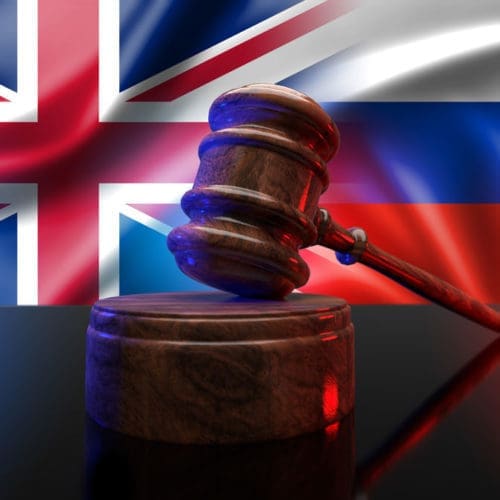Russia Sanctions: The EU follows UK lead on Architecture and engineering
November 2022Introduction
On 24 October, the EU Commission provided guidance on the eighth sanctions package against Russia, itself introduced on 6 October. The package announced further restrictions against 30 individuals and a price cap on the transport of Russian crude and petroleum oil products.
Most importantly for those in construction and infrastructure, the eighth package introduces further bans on the export of services relating to architectural and engineering services. IT consultancy services, legal services are also included within the package although we have not focused on these in this note.
This development follows the announcement of the UK Government of its decision to prohibit the export of architectural and engineering consultancy services to Russia. We reported on that announcement: here
The prohibited services
The prohibition has been enacted as a new provision, Art 5n(2) of Council Regulation 833/2014. To assist in interpretation, the EU Commission in its guidance on the prohibition has fleshed out the meaning of ‘architectural and engineering services’.
It has confirmed that “Architectural Services” include:
- Advisory and pre-design architectural services: assistance, advisory and recommendation services concerning architectural and related matters.;
- Architectural design services: architectural design services for buildings and other structures (e.g. schematic design services);
- Contract administration services: advisory and technical assistance services to the client during the construction phase to ensure that the structure is being erected in conformity with the final drawings and specifications;
- Combined architectural design and contract administration services: combinations of architectural services utilized on most projects including schematic design, design development, final design and contract administration services; and
- Other architectural services.
Engineering Services include the following elements:
- Advisory and consultative engineering services: assistance, advisory and recommendation services concerning engineering matters;
- Engineering design services for construction of foundations and building structures: structural engineering design services for the load-bearing framework of residential and commercial, industrial and institutional buildings;
- Engineering design services for mechanical and electrical installations for buildings mechanical and electrical engineering design services for the power system, lighting system, fire alarm system, communication system and other electrical installations for all types of buildings and/or the heating, ventilating, air conditioning, refrigeration and other mechanical installations for all types of buildings.;
- Engineering design services for the construction of civil engineering works: : engineering design services for the construction of civil engineering works (e.g. bridges, dams, flood control works, tunnels, highways, wharves and harbours and water supply and sanitation works). This covers preliminary or initial plans as well as work within the construction phase;
- Engineering design services for industrial processes and production: engineering design services for production processes, procedures and facilities. Again, preliminary and interim plans are covered, along with work done in the installation phase;
- Engineering design services N.E.C.: other specialty engineering design services (e.g. traffic control systems) to the exclusion of aesthetic design;
- Other engineering services during the construction and installation phase; and
- Other engineering services.
For further explanations of the categories listed above and for extra detail please find the EU Commission’s FAQ sheet here.
Comment
It is important for those architects and engineers operating in Europe to note the scope of this ban, as these sanctions will apply to them even if they are a UK registered business. Whilst many are aware of the fact that they must apply to the increasing number of UK sanctions, this vital fact is often overlooked.
The ban includes a wind down period that may assist affected organisations. That aims to give breathing space to parties to withdraw from their contracts in an orderly way. The EU have provided that companies that have existing contracts concluded before 7 October 2022 with Russian clients or of ancillary contracts necessary for the execution of such contracts have until 8 January 2023 to wind down these positions. Whilst helpful, parties need to consider the specific terms of their engagement, noting clauses relating to force majeure and termination.
In the wake of Brexit, it is interesting to note the inspiration and close relationship between the UK and EU sanctions regimes. We have previously reported on the UK’s ban on an the export of architectural and engineering services (which can be accessed here), but whilst the UK were first to announce, the details of the ban are yet to be released.
The EU Commission’s release may give some indication as to the UK’s plan. However, do not automatically assume that it will include a wind down period. Whilst the UK government has in some cases granted a general licence to wind down positions in respect of some sanctions, it has not done so as consistently as the EU. As such, architects and engineers involved in projects should be prepared to act quickly and decisively.
As this is a nascent area of law that is developing at a rapid pace, we advise that companies keep a close eye on the announcements from OFSI, the EU Commission and OFAC to understand the sanctions that have been put in place.
The benefit of sanctions compliance training
Sanctions are increasingly becoming an important factor that companies are considering and we have extensive experience in advising on sanctions generally, completing sanctions searches and applying for specific licences from OFSI. Should you feel that you are your organisation need assistance with sanction related matters or would like some training on sanctions please do get in contact with Paul Henty or Harry Coates of this firm.
Download PDF







